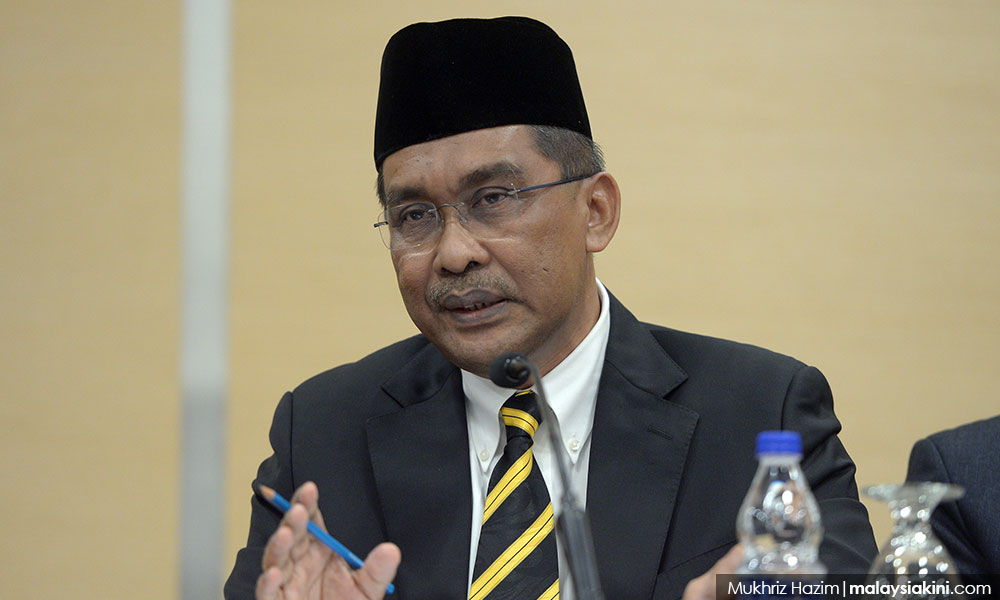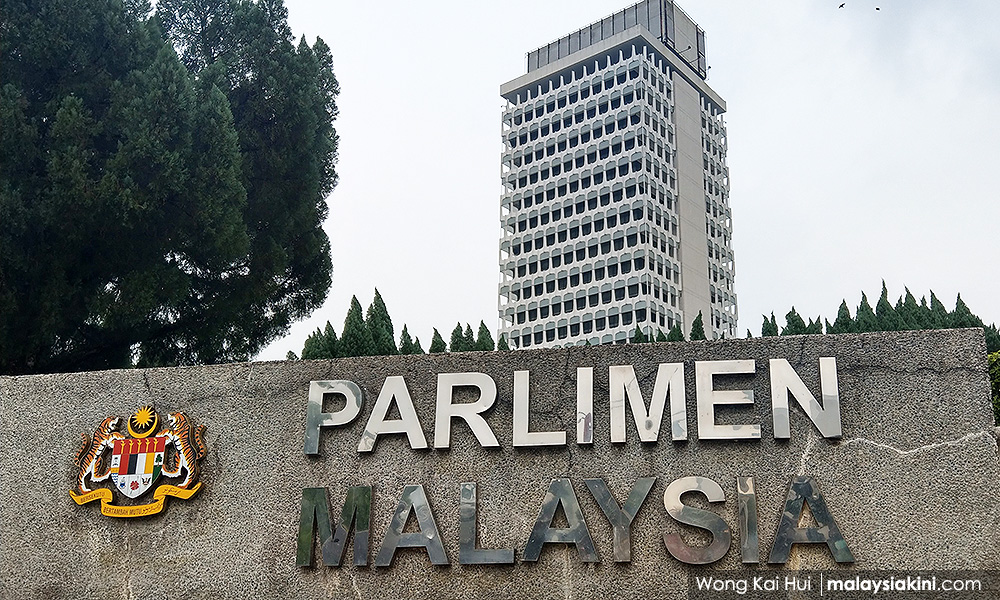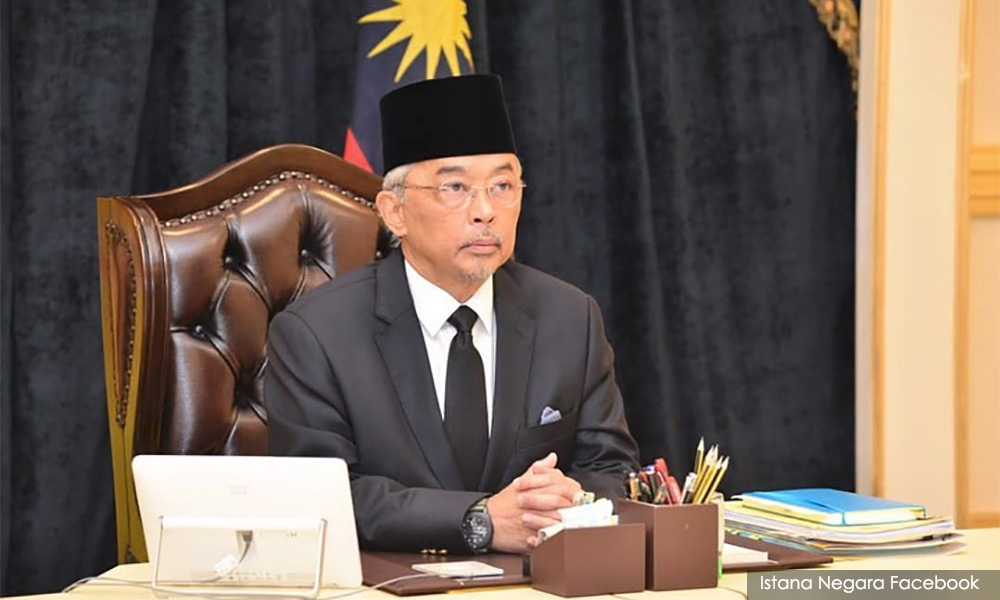MP SPEAKS | Just before the Supply Bill (Budget) 2021 was passed for second reading, I wrote on the confidence convention and, as anticipated, the confidence debacle has not waned away but continues to linger, if not intensified.
So far, an event of loss of supply has not occurred yet. Twenty-six ministries have seen their budgets passed and just one more ministry to go before the third reading of the Bill is put to the vote today.
Against this backdrop, there are 25 motions of no-confidence and two confidence motions (members’ motions) tabled by MPs from the government and opposition; all of which have not seen the light of day despite the motions being regular in accordance with the Dewan Rakyat’s standing order.
Given that the motions list appearing in the 'Aturan Urusan Mesyuarat' (Rule of Meeting Affairs) will be invariably long, ordinary members’ motions will not find time to be moved especially since the standing orders and convention dictates that government business takes precedence.
Unsurprisingly, the government seems unperturbed by the number of no-confidence motions tabled against the prime minister. After all, the series of victories in budget votes by ministry enjoyed by the government suggests that the prime minister and his cabinet command the confidence of the majority.
This effectively dispels any doubt concerning the government’s 'legitimacy' raised by the honourable MP for Gua Musang, Tengku Razaleigh Hamzah.
Meanwhile, efforts to challenge the command of confidence of the sitting prime minister have not only come from within the four walls of the august House but from outside as well, as reported by news outlets and political commentators across the country.
It should be recalled that during minister’s question time on Dec 10, Pasir Gudang MP Hassan Abdul Karim queried the prime minister as to when the members' motions would be heard.
Assuming any MP takes a cue from the answer given by the minister in the Prime Minister’s Department (Parliament and Laws) Takiyuddin Hassan, then can statutory declarations (SDs) furnished to the Yang di-Pertuan Agong serve as a possible tool to shift 'confidence' from Pagoh MP Muhyiddin Yassin to another MP?

In this regard, other than being ordinarily understood as a political tool to establish confidence, what is an SD? To put it simply, an SD, akin to an affidavit, is a legal instrument which is governed by the Statutory Declarations Act 1960.
So much importance is attached to the veracity of the contents of an SD that Section 200 of the Penal Code states that “using as true any such declaration known to be false” is an offence.
The danger of making a false declaration in an SD is that apart from possibly being investigated for making a false declaration, which by the way, carries an imprisonment term not exceeding three years upon conviction, MPs ought to also be mindful about the 2012 amendments which incorporated sections 124B to124F into the Penal Code.
Do note that these amendments came about two years after the Perak case was decided. Those sections deal with offences which relate to "activity detrimental to parliamentary democracy" and carry an imprisonment term not exceeding 20 years. In fact, section 124C makes it a crime for one to even attempt to commit such an offence.
The definition of “activity detrimental to parliamentary democracy” is prescribed in Section 130A as “an activity carried out by a person or a group of persons designed to overthrow or undermine parliamentary democracy by violent or unconstitutional means”. Whether by design or on account of being elementary, “parliamentary democracy” is not defined in the Penal Code.

However, a simple Wikipedia search will tell us that “parliamentary democracy” is a parliamentary system of democratic governance of a state where the executive derives its democratic legitimacy from its ability to command the confidence of the legislature, typically a Parliament, and is also held accountable to that Parliament (emphasis mine).
Since there are virtually no reported cases in the law journals on how the courts interpret sections 124B to124F, it is difficult to say for certain that an act of an MP in signing an SD or attempting to sign one in support of a new prime minister will be construed as an offence under these sections given that signing of SDs can possibly bring about a situation whereby a prime minister loses his ability to command the confidence in the Dewan Rakyat.
In any given situation, no matter how many SDs will be signed or have been signed, Articles 40(2) and 43(2) of the Federal Constitution dictate that ultimately, it is for the Agong to judge as to who in his judgment is likely to command the confidence of the majority.
The growing speculations that SDs will be and have been signed by MPs have left me to wonder whether MPs who seek to establish confidence outside the Dewan Rakyat are immune from legal proceedings.
I, for one, am a firm believer that Parliament is the safest way for MPs to establish confidence in a prime minister simply because Section 7 of the Houses of Parliament (Privileges and Powers) Act 1952 grants immunity to MPs from legal proceedings for any act said or done.

The immunity conferred to MPs under this act certainly allays any apprehension MPs may have in signing SDs in view of sections 124B-124F of the Penal Code.
However, considering that members’ motions to establish confidence are unlikely to be brought forward, I am of the view that when it comes to the office of the prime minister, there appears to be a right to hire, no right to fire.
Having said that, the ‘right to fire’ a prime minister by MPs can actually present itself via the Agong. I imagine that if ever there was an event where the Agong seeks to ascertain and establish confidence in a prime minister, or a prime minister-to-be, an MP who is summoned to the Palace must necessarily be taken to have been cloaked with immunity from legal consequences.
In any case, if the event of a ‘right to fire’ as envisaged above takes place, suspicions of MPs committing an offence relating to “activity detrimental to parliamentary democracy” would be a non-starter. Until then, it's status quo – right to hire, no right to fire.
AZALINA OTHMAN SAID is Umno's MP for Pengerang. - Mkini
The views expressed here are those of the author/contributor and do not necessarily represent the views of MMKtT.




No comments:
Post a Comment
Note: Only a member of this blog may post a comment.